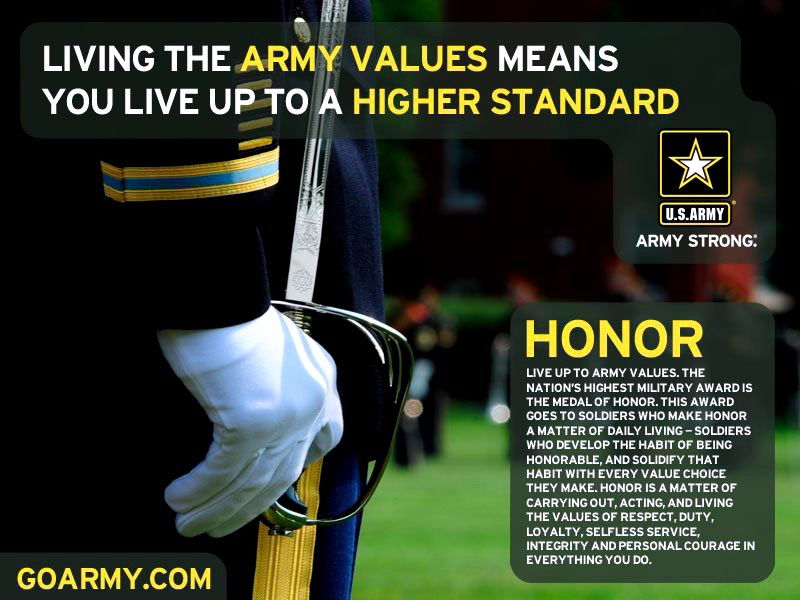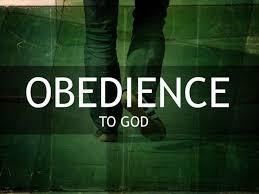WORSHIP TO GOVERN : SEVENFOLD PURPOSE OF WORSHIP

Religious traditions have camped worship experience around a people and a place. Specific time of the day or the week and annual sacred festivals set the repeated pattern of worship. Such religious arrangement had taught us all how to consistently worship. Seemingly to many, worship conjures up pictures of believers in a pious posture while fulfilling some required religious obligations. Furthermore, most religions have integrated singing and devotional dances in the normal repertoire of worship. To a regrettable extent however, the outcome of such well choreographed religious ceremonies had led many to a common fallacy. Today, quite a good number of believers have reduced worship to devotional songs, dances, pious postures and candles lighting.
Yet, all religions and even occultism have songs, rituals, and sacred dances performers. Rituals and songs have never been the hallmarks of God's children. One does not become God's child by graduating in sacred dances and religious ceremonies. Rituals, songs, and mystic experiences are not the way to sonship. Sonship is tested through mature obedience, responsibility, and a demonstrated inherited character as marks of belonging to God's family. Certainly, God's peoples are not known by their religious rituals, dances, songs, and hands clapping. As important as fervent dances and religious postures may be, they are all part of protocols and procedures in a king's courtyard.
Notwithstanding the fact that religious attendance is uplifting, Biblical worship has nothing to do with a sacred place or one's sacred obligation performance. At its core value, Biblical worship has never been a religious performance. Biblical worship requires at least two normative conditions. One, worship takes place within the framework of a covenant between God and Man. Outside the binding covenant, there is no worship of the Living God. Two, the purpose of Biblical worship fits into the divine mandate of governing peoples to bring about a holy nation on earth. Biblical worship, taken out of this covenant context, becomes simply a religious entertainment for peoples without a commitment whatsoever.
Indeed, it is easier to perform hollow religious rituals than entering a covenant relationship with the living God. For one can fervently indulge in religious rituals without even knowing God. Revealingly, in John 4: 22, Jesus cautioned the samaritan woman about the same religious pitfall that had led so many astray: "You worship what you do not know ". That compels us to clearly identify the purpose of Biblical worship to guard against fervent religious worship experiences that are roads to nowhere.
RELIGION COULD BE LEGITIMATELY BORING AND FRUSTRATING
Sunday gathering for most believers has become a religious obligation. The religious chronogram has been memorized. Hand-picked songs from hymnal books, a spiritual dance therapy session, corporate devotional praises, and a time of sharing of the Word to close the weekly attendance. Years in, and years out, this religious chronogram could turn into a boring routine. Yet, Jesus did not die on the cross just for us to secure few beautiful hymns and some religious dances on Sundays. It seems imperative to tell people what the purpose of gathering on Sundays ultimately amount to. When a coach builds up a team of soccer players, it's not enough to get the team to run fast, exercise, learn fair game techniques and forget the purpose of playing soccer all together. The players could be very good in entertaining soccer funs, but the ultimate goal is to score goals and make more money. Likewise, the call to worship has a purpose. The matter- of- fact compass through which we measure worship is not where and how one worships by way of ritualistic performance, but why and who you worship, and whose binding character and policies you are the demonstration of, when praises and pious devotions are over.
When A Worship Gathering Turns Into A Funeral Home
In 1 Samuel 28, we learn that, under Saul's leadership, God's Ark of covenant had been lost for a generation. Worship of Yahweh had so much vanished in the nation that king Saul was seeking direction from the witch of Endor, a spiritualist medium. Consequently, when king David took hold of government affairs, he made it a priority to bring about a national revival of worship by moving the Ark of covenant to Jerusalem. The king carefully set up the sacred environment for the Ark to flow in the midst of praises and worship. David the king and all the people of Israel were celebrating before the Lord, by singing songs and playing all kinds of musical instruments. Levites were appointed to make petition, give thanks, play the lyres and harps, and praise the God of Israel, while the Ark was being carried away to its final place.
Shockingly enough, 2 Samuel 6: 6-7 tells us, that when the Ark procession arrived at the threshing floor of Nacon, the oxen that carried the Ark stumbled. And a man by the name of Uzzah reached out his hands and steadied the Ark of God. God was angry against Uzzah's gesture and struck him dead on the spot. Uzzah's infamous act and the careless kingly decision to carry the Ark on a chariot amounted to an act of disobedience to God's Word. On that day, worship gathering was scattered and fear took hold of peoples' hearts. Songs and music came to a brutal end around a funeral home. A shocking reminder that God is not seeking worship through songs and dances, but mature obedient children. As in the Old Testament, so it is in the New Testament.

In Acts 5, the community of the first believers in Christ was in the midst of a spiritual revival, heavily loaded with miracles and an outpouring acts of love and generosity. In the midst of such contagious fervor of giving and sharing, Ananias and his wife Sapphira, sold some property. They thought they could help and assist God to advance his kingdom on earth. They both agreed to keep part of the money from the property they sold, and took the risk of deceiving the apostles by performing a public fake generous worship act.They brought part of the money to the apostles, claiming it was the full amount. Peter sharply rebuked the couple. It is a dangerous game to pretend to worship God while at the same time cheating and telling lies to the Holy Spirit. "Ananias, why have you let satan fill your heart? You lied to the Holy Spirit, and you kept some of the money for yourself." Ananias dropped dead on the spot and three hours later his wife Sapphira followed her husband to the grave. The couple met their violent death on their journey to deceiving the Holy Spirit through a fake worship performance.
God is not seeking worship, but a heart surrenders to Him in a spirit of truth and obedience. A call to worship is not a platform for showtime through music, fancy songs, and dances before God, but a soul searching exam to get right first with God, to be like Him and operate like Him. The first thing we offer to God in an act of worship is not an outpouring of fervent songs and dances, but a pure heart willing to obey Him and stand in His presence in truth and humility. The God of Israel stands at odds against worship to begin with. He does not seek worship, but worshippers. God is a Father who has expectations for all his children coming to Him. As Father and King, God is first of all concerned about his children reflecting his image and likeness, before being involved to advance his government's agenda.
WORSHIP WITHOUT KNOWLEDGE IS A SELF INFLICTED DECEPTION

When Israel received the first invitation to approach Mount Sinai for worship, God did not assign the peoples to begin singing, shouting, dancing, and doing rituals around the mountain. God is not a spectacle giver and is not interested in attending religious ceremonies. The Sinai Summit was all about a business meeting for government on earth. God was looking for a group of peoples or nation that could implement his kingdom's policies on earth. That's what worship is all about: submission to a divine policy.
Why the choice of Mount Sinai? Oftentimes, when we hear about mountain in the Bible, it speaks about government. The mountain of the Lord means, God's governmental place. Psalm 76:3 mentions that, on Mount Zion, God has broken the fiery weapons of the enemy, the shields and swords and weapons of war. Zion is a governmental place where God had put an end to rebellion against his will. Importantly, Mount Sinai is an appointed place to carry governmental business.
God is not meeting Israel for religion ceremonies at Sinai, but for a cabinet meeting to speak about government on earth. Thus, it is said that Moses consecrated the peoples for worship, and they washed their clothes. Then, God gave them his clear instructions. Worship consisted of God introducing Himself first to the people to know Him and what they must expect when they become his peoples. People were given knowledge to enter into a divine government agenda for transformative action on earth.
Biblical worship is a call to act consistently according to the revealed knowledge given by God. Worship is a covenant agreement to act according to God's Word and character. Moses received the 10 commandments for Israel to have knowledge of who God is in order to act accordingly. In fact, the 10 commandments are the substance of the Sinai Cabinet meeting between God and Israel to embark of a government mandate on earth.
The 10 commandments are the roadmap for action on earth: work to bring justice, peace, and righteous nations. Israel received a government portfolio. A portfolio is a minister's areas of responsibility as a member of a Cabinet. God was giving a specific responsibility for Israel to govern and implement holiness, righteousness, and justice on earth, not to go and do rituals. Worship is a responsibility. God revealed the kind of worship or corresponding action He is expecting from those who have been called to know Him through a covenant relationship.
Worship is not a pious self-concocted ritual showcase to buy God's favors. We go to God in worship to get a revelation about who God is, and what His character is like, in order to operate or become like Him. Actually, the religious songs are pedagogical apps teaching us about the nature and character of God. Our songs tell us that God is "Holy", "Just", "Righteous", "Love", "Merciful" etc...Therefore we are called to be holy, just, righteous, love, and merciful. In Leviticus 19:1, the Lord emphasized the following instructions to Moses for the entire community of Israel: "You must be holy because I, the Lord your God, am holy". Candles lighting in sacred places are a simple call for all to become Light as God is the Father of Light. Songs and the beauty of the temple are learning kits to convey us to the reality of what we should grasp hold on. They are meant to help us grow in the knowledge of God, not to become compulsive spiritual diapers to parade with. Love, forgiveness, peace, kindness are all part of the nature of divine light that we are called to demonstrate outside the walls of the temple.
Self understandably, God cannot require peoples to become worshippers without teaching them how, when, and what to worship. Worshippers are those who respond to the call for action. Love thy neighbor as yourself is a call to action, not a religion. Doing justice and caring for the widows in a nation is a call to action, not an active duty religious performance. That's the reason why God introduces Himself first to us for us to have the substance of divine worship.
God is holy and those who worship him are called to be holy. God is light, and those who worship him are called to become light. God is love, and those who worship him are called to manifest love. Any one who wants to worship God must hold in high esteem to honor father and mother. One who worships God does not kill or commit murder and adultery. A worshipper does not steal and covet his neighbor's wife. There is no place for doing religion here. Worshipping what we do not know is playing a religious lotto jackpot game. That's the substance of worship given through the 10 commandments. For it stands as a contradiction for one to worship God who is love, merciful, and righteous, while reflecting back hatred, evil, and injustice around. Manifesting opposition and rebellion to the character of God while pretending to be a worshipper is a clear signal of a polarized behavior and a high mark of false worship.
A clear example of a candidate of worship who experienced self inflicted deception before he received revelation knowledge was Saul in Acts 9. Saul was a murderer, persecuting and putting the believers in jail as an act of worship to God. Saul failed to realize that he was claiming to worship God while being an enemy of God. On the road to Damascus, the Lord appeared to him, giving him the proof that he was worshipping what he did not know: Saul, Saul, why are you persecuting me ? Along this same ignorant blind journey of worship, we often claim to worship God who is truth, while we tell lies to God through our fellow men. We worship God who is love, while we demonstrate hatred to God through our neighbor. We worship God who is just and righteous, while we do wrong to God by twisting justice in the courts and taking a bribe to condemn the innocent. Worship is found in the act we do to others.
WORSHIP IS A RESPONSE TO LIGHT

To worship in its hebrew root, -shachah -, means to prostrate oneself, to bow down, or to lay flat on the ground with the whole notion of total submission, surrender and obedience. But now, how could someone obey or worship God outside His Word? The physical act of kneeling down or laying flat on the ground amounts to a comedy show if one refuses to obey God's Word. The first and last place where we worship God is through obedience to what His Word. That is where many got it wrong.
To worship means, to obey God's Word: "do not lie; do not kill, do not covet...! ", is a call to submit to God's will, not to do religion. That' s the only way worship is demonstrated, not by piously rolling on the floor and rising up to begin brewing lies and planning evil. We cannot worship outside God's Word and will.
Worship is the act of ascribing the highest value or worth to God. When we ascribe the highest worth to the object of our worship, our conduct or character changes and lines up with that high truth and value. In an act of worship, we ascribe all credit of who we are and become to the source of our worship. When we worship or totally surrender to God's will, we are transformed by what we worship. Man is made in the image and the likeness of God. Being made in the image and the likeness of God does not describe the same function. Being made in the likeness of God means, to operate just like God. To worship God is to operate like God.
In worship, how much light can one absorb and reflect around when there is an encounter with truth and light become the issue. When we interact with light, we function in the likeness of light. Worship is the function of the index of refraction when light shines on someone who encounters the source of light. Let us consider light in electromagnetic oscillation. Light on its speed causes other electrically charged particles in the like of electrons to oscillate. Because of their interaction with the original light, oscillating electrons emit in return electromagnetic waves. Refraction is simply the change in direction of a wave moving from one medium to another.
Exodus 34: 29-35 gives us a clear picture of refraction when Moses encountered God. Moses' face become radiant when he encountered God on Mount Sinai. He has to put a veil on his face for the people to come near him. God is Light, and when we encounter light we cannot shine darkness. Matthew 17 also echoes back this same reality when Jesus met with Moses and Elijah at transfiguration. Jesus' face was shining like the sun, and his clothes became as white as the light.
WHEN PRAISES END, WORSHIP BEGINS BY A STEP OF OBEDIENCE IN THE CITY

There is a difference between praises and worship. Many wrongly adjust their praises moment to worship. To praise is to express acknowledgement, admiration, approval, and gratitude for what someone has done for us. Often time, we praise a person we admire and like. We are full of praises for our children and mentors. Praises could be conveyed through expressions of gratitude, celebration, gifts, shouting, dances, and festive music. But only God deserves our worship, because He is the only one we owe adoration, total submission, and obedience. The psalms of David are a clear demonstration of explosion of praises to God for his love and faithfulness to his covenant peoples. "Let the faithful rejoice that He honors them. Let them sing for joy as they lie on their beds" (Psalms 149:5). "Praise the Lord, for the Lord is good; celebrate his lovely name with music."(Psalms 135:3). "Praise Him with the lyre and harp. Praise Him with tambourine and dancing. Praise Him with strings and flutes! Praise Him with a clash of cymbals. Let everything that breathes sing praises to the Lord." (Psalms 150:3-6)
Praising God carries always the heavy weight of divine action and goodness for his peoples, and has nothing to do with a mental self-motivated religiosity. The Lord commanded everyone in Israel to appear before Him three times each year for a festive celebration of thanksgiving. Exodus 23: 17 makes mention of these festivals to honor God: The Feast of Unleavened Bread to mark the departure from Egypt; the Festival of Harvest; and the Festival of the final Harvest to show gratitude for God's abundant blessings. The joyful festivals matched the level of blessings and care peoples received from God. It's wasn't a Sunday gathering routine, because there was no mass transit system. For it took one or two days- journey to travel to Jerusalem or to an appointed place of worship to fulfill this yearly divine obligation. Worship was understood as a journey of obedience to the Word of God. That led the Gentiles believers to quickly reduce worship as an act of joyful praises and dances. Ultimately, to worship is to take a step of obedience to God's sovereign Word.
Now, when our corporate praises to God wind up, worship begin in family as well as in the city. It's in the city and our communities that we demonstrate our loyalty as God's peoples, not in the Temple. Assuredly, we praise God in the temple, but strictly speaking, we worship God outside the temple. When we praise God as righteous and just, we must take a corresponding action of obedience to demonstrate it out there for the nation to see. We are in covenant with God in the city, and that must be visible, and cannot be hidden. We worship by our good actions.
When we praise God for his justice, we must demonstrate justice in the city, lest we become compulsive hypocrites and liars. You worship a merciful and loving God, good enough ! You must become the demonstration of who you worship in the city, not shouting it out alone on sacred grounds. For there is no place and time of worship. Wherever we find ourself in, there we demonstrate our submission to God by reflecting who God is. Oftentimes, we are very good at doing religion. But when it is time for worship, we are completely at odds with who we worship. Wherever we are, let there be worship and allow our religion to take a break! Worship costs us an act of obedience. Worship always involves obedience by demonstration.
WORSHIP WITHOUT OBEDIENCE IS A SPIRITUAL SCHIZOPHRENIA

To worship and to do God's will are one face of the same coin, as far as worship means total surrender to God. We cannot divorce obedience from worship. John 9: 31 makes it so specific for us: "We know that God doesn't listen to sinners, but He is ready to hear those who worship Him and do his will." It takes obedience to worship God. In Isaiah 6, the future prophet Isaiah had a vision of God surrounded with angelic beings in his temple. The Lord did not request Isaiah to improvise a ritual and begin throwing himself on the floor in sign of obedience. Rather, after he got cleansed from his lips, God's burning concern was a candidate who could obey him to go for a governmental mission: "Whom shall I sent, who will be our messenger?". Isaiah immediately answered: "I will go! Send me!". Isaiah worshipped by obedience.
In Genesis 22: 5, God tested Abraham's faith by demanding from him to worship him through an act of obedience on the land of Mariah Abraham has to sacrifice his only son as a burnt offering. Fully aware of the cost of worship by obedience, Abraham told his servants: " The boy and I will travel a little farther. We will worship there, and then we will come right back." Paul in Roman 12:1, expounds to us the revelation behind Abraham's obedience to sacrifice his only son. "Give your bodies to God because of what he has done for you. Let them be a living and holy sacrifice - this is your true and proper worship." Abraham's sacrifice was a shadow of the new coming covenant's worship.
IN THE NEW COVENANT, WORSHIP STARTS IN HEAVEN DOWN TO EARTH
Hebrews 5:7 tells us that God had begotten Jesus, making him a hight priest forever in the order of Melchizedek. The Melchizedek's priesthood functions from the highest order, breaking away from the established old system temple worship requirements. It's a departure from the Aaronic and Leviticus temple cult priesthood. As priests, Aaron and the levites represented men unto God. They received men's offering of fat bulls, grain offerings, and sin offering to present them to God.
Melchizedek has no beginning and no end. He is a high priest unto God, not a priest unto men. This unique kingly type of priesthood brings down God's provisions and treasure from heaven to men for worship, not men's offerings to God.
Jesus had no lamb or bull to slaughter for God in the temple to cleanse peoples from their sins. He was the very sacrificial lamb sent by God to men. That's the reason why Jesus never officiated in the capacity of a temple priest. He did not come from the Levites tribe. As the Lion of the tribe of Judah, Jesus was priest unto God, representing God, fulfilling kingly obedient worship to His Father, not a priest unto men. The Melchizedek's priesthood is an obedient demonstrated responsibility to God's Word, not a liturgical or religious performance. Psalm 103: 20 depicts the ongoing 24H/24H worship in heaven. "Praise the Lord, all his angels who carry out his Word, who hearken to the voice of His command."
Therefore, in the new covenant, worship starts in heaven and becomes manifest on earth. Even the songs and praises we offer must be revelation songs and praises downloaded from heaven to earth. Indeed, heaven will not receive any form of worship that does not bear its seal of approval. In Genesis 14: 18, Melchizedek brought Abraham some wine and bread. The Manna came down from heaven to feed the peoples in the desert. Jesus, the bread from heaven, came down as a salvation provision to meet human spiritual longing. Jesus' ministry unto God was all about an obedient submission to God that brought healing, restoration, forgiveness, freedom, and resurrection life from heaven down to men. Abraham took his son to offer him to God on the mountain, but instead, God provided the sacrificial holy lamb in place of Isaac, by giving his only son at Golgotha. Jesus' death on the cross is God's sacrificial offering to men for worship.
The Melchizedek's priesthood serves and obeys God by offering Him an absolute and reverent submission to God's will. Sin entered the world through man's disobedience and rebellion. Man lost his position of dominion and fellowship with God through an act of disobedience. The way to restore a fallen humanity took the road back to heaven where worship began in total submission and obedience to God, down to Golgotha.That is why, when Christ came into the world, he said to God in Hebrews 10: 5-7: "You did not want animal sacrifices or sin offerings. But you have given me a body to offer. You were not pleased with burnt offerings or other offerings for sin. Then I said, 'Look, I have come to do your will, O God - as is written about me in the Scriptures."
In the new covenant, God requires of us a total, undivided heart that does not compete with anything we hold dear. For nothing belong to us and the highest form of sacrificial offering had been accomplished through Christ. We surrender everything to the indwelling presence of the Holy Spirit within us to take control and fulfill God's will through us. To worship is not to do religion, but to do God's will.
Psalm 40: 6-8 taught us the truth behind worship in the new covenant as demonstrated by Jesus. "You take no delight in sacrifices or offerings....You don't require burnt offerings or sin offerings. Then I said, "Look, I have come. As is written about me in the Scriptures: I take joy in doing your will, my God, for your instructions are written on my heart." That's the meaning of offering our bodies as a living sacrifice to worship God through obedience. God's laws and decrees are no longer external requirements that we must strive to submit to. God's Word and decrees are written not on tablets, but on our hearts. We are led by the inward witness, who is the Holy Spirit dwelling within us. We submit to the leading of the Spirit to accomplish worship. Thus, the highest act of worship was done at Golgotha when Jesus worshipped his Father by fulfilling the call to the cross for our salvation. Going to the cross was for Jesus the highest act of worship. That's why we are called to offer our bodies as a living sacrifice, holy and acceptable unto God. We may know shed some more clarity on the purpose of worship.
SEVEN- FOLD PURPOSE OF WORSHIP

I. Worship is a Demonstration of God's Character, Not Doing Religion
The matrix of worship is to be found in Exodus 19: 5 -6. Exactly two months after the Israelites left Egypt, they camped at the base of Mount Sinai. The Lord called Moses to him from the mountain and said, "Give these instructions to Israel".
"Now if you will obey me and keep my covenant, you will be my own special treasure from among all the peoples on earth. And you will be my kingdom of priests, my holy nation."
One, Biblical worship is intimately correlated with a covenant between God and Man. Worshippers are known by their mature obedience to the Word or the laws of God. Outside the covenant, there is no worship. Obedience and keeping the covenant agreement make one part of God's peoples, not singing and doing rituals. Outside the divine covenant, we are simply zealous promoters of a system of a religious false worship. In occultism for instance, the candidates perform strict rituals in order to secure a desired outcome, be it the quest of power to dominate people and situations or protection from perceived threats. Like in a buyer-supplier transaction, both partners remain aloof and develop impersonal communication strategies. In such notorious spiritual opportunism, peoples' ritualistic fervor works hard for personal gain and selfish motives.
In stark opposition to occult forum, Biblical worship has never been about an investment in spiritual self-seeking lottery to advance one's personal agenda. Biblical worship is all about a mature obedient demonstration of God's character by working with God for a government that brings a holy nation on earth. Now, why keeping and obeying God's Word ? What is the purpose of obeying God's Word? God's Word and Laws make a holy nation and reflect the will and character of the King.
Two, the goal of Biblical worship is to bring about a divine government on earth. Biblical worship fulfills the function of building a Kingdom of priests, and a holy nation on earth. Priesthood here does not refer to a Levitical order. Priesthood refers to a governmental body, that knows, obeys, and brings legislative work from heaven to be manifested on earth. The kingly priests are those who bring the Lord's dominion, rulership, and release divine legislation from heaven down to earth. The priests are those who demonstrate how divine law enforcement works on earth.
That's why true worshippers are all priests, as God's legislators on earth. God is looking for legislators to decree his Word and laws on earth. When we obey and keep God's Word, then we become God's government of priests on earth - those who know, demonstrate, and reinforce divine decrees in the world. In Matthew 28: 16-30, Jesus' great commission to his disciples is a repeat of Exodus 19: Go, make disciples, teaching them to obey all I have commanded you. Worship without teaching is idolatry and darkness. The disciples are those who obey and follow the teaching given to them. Good disciples abiding by revelation knowledge are those who make up a holy nation.
By revealing His character and nature to a body of obedient peoples, God wants to build a holy nation on earth - an exact replica of heaven. The roadmap to a holy nation does not come when peoples dance and sing in sacred places. A holy nation comes when peoples stop defrauding or robbing one another, and when they put an end to cheating and twisting justice, and coveting their neighbor's wife. In other words, when people walk in righteousness, we see the advancement of a holy nation. It takes holy peoples to bring about a holy nation. In John 17:17, Jesus' final prayer for the disciples was an intercession to the Father to make the disciples holy by his truth.
Thus, the measure of worship is to be found outside the Temple. It does not matter how long we sing and piously accomplish our religious obligations. As long as there is no demonstration of what and who we worship outside the gates of our religious circles, we are promoters of a religious entertainment business. The nation is not making progress towards the mandate of a holy nation when we are failing to worship or give glory to God. To glorify God is not to carry hymnal books and perform a ritual. To glorify - doxazo - simply means, to extol, to demonstrate and make known the attributes of God on earth. That's the reason why God is not seeking worship, but worshippers - peoples who can be a demonstration of who He is.
Matthew 17 echoes back the intimate link between worship and obedience on the day of Transfiguration. Jesus met with Moses and Elijah on a vision at the mountain. Moses represents the Law and the teacher of Israel for obedience. Elijah represents the demonstration of God's power and character through obedience. Jesus holds together both the Elijah and the Moses' ministry. He fulfills the Law and obedience to God, and equally demonstrates God's character through his mission on earth. Thus, taken out of context, worship becomes a mere religious performance. In this case, God's government priorities to advance a holy nation on earth have been erased and diverted for religious entertainment.
II. Worship Is Taking Up responsibility to Restore a Suffering Humanity
Worship is a result of revelation about who God is in his sovereign character, and from this knowledge we enter into a binding agreement to see God's plans and agenda come to pass on earth. We can never worship beyond our knowledge. In Exodus 3 Moses had a worship encounter with Yahweh at the burning bush. Moses got the revelation at first hand about the character and nature of God.
The Lord introduced Himself as someone who sees and is concerned about human suffering. God hears human cries. Therefore, as a King, God governs to rescue people who are in bondage and oppression. When we worship God as He is, we must become like the King. We worship God who is merciful, concerned about human suffering. So we must become and act accordingly. Worship is an action we take when we get the revelation about who God is. Worship is an action that follows knowledge of the truth. Worshippers are those who see human suffering around and are concerned about human oppression and take action to restore others.
In Isaiah 53: 4-5, the suffering Lamb of God was carrying our weaknesses and our sorrows weighed him down. He was beaten so we could be whole. We was whipped so we could be healed.
In Matthew 14, when Jesus stepped out of the boat, he saw a huge crowd looking after him. He was moved and had compassion on them. Consequently, he healed the sick and fed five thousand peoples.
John the Baptist in his prison cells began to entertain doubts whether Jesus was the Messiah the nation had been longing for. Jesus answers by a demonstration of who the Messiah was representing. Jesus was not busy doing religion in Israel. He was focused on giving worship through obedience to God. He referred John to his obedient act of worship to God. "Go back and report to John what you have seen and heard: the blind receive sight, the lame walk, those who have leprosy are cleansed, the deaf hear, the dead are raised, and the good news is proclaimed to the poor. "
III. Worship is A Commitment To a Freedom Agenda For Those In Bondage
" I have indeed seen the misery of my people in Egypt. I have heard them crying out because of their slave drivers, and I am concerned about their suffering. So I have come down to rescue them from the hand of the Egyptian...So now, go. I am sending you to Pharaoh to bring my people the Israelites out of Egypt. " Exodus 3: 7-9
To worship God is to go on a journey of obedience to God's Word in order to govern and set the captives free.
Moses worshipped God and demonstrated his action through obedience and submission to God's will. Worship is not an abstract solitary soaking experience. Worship always attracts and commands responsibility. Worshippers are those who go and take up action to govern for earth to reflect heaven's priorities by setting people free. Worshippers are those who bring freedom to others by standing against injustice and oppression.
"The Spirit of the Lord is upon me, because he has anointed me to proclaim good news to the poor. He has sent me to proclaim liberty to the captives and recovering of sight to the blind, to set at liberty those who are oppressed " Luke 4: 17-21.
IV. Worship is an Act of Accountability
The norms of our actions and behavior in worship are accountable to God's character and principles.
"Do not steal. Do not deceive or cheat one another. Do not defraud or rob your neighbor." Leviticus 19: 11
"Do not stand idly by when your neighbor's life is threatened."
Love your neighbor as yourself.
"Do not use dishonest standards when measuring length, weight, or volume. Your scales and weights must be accurate." Leviticus 19: 35
V. Worship Calls for Justice

"Is not this the kind of fasting I have chosen: to loose the chains of injustice and untie the cords of the yoke" Isaiah 58:6.
To worship God is guard against twisting justice.
"Do not twist justice in legal matters by favoring the poor or being partial to the rich and powerful. Always judge people fairly." Leviticus 19: 15
Exodus 23: 1 " You must not cooperate with evil people by lying on the witness stand. "
Exodus 23: 6 " In a lawsuit, you must not deny justice to the poor."
"In mercy the throne will be established; And one will sit on it in truth, in the tabernacle of David, judging and seeking justice and hastening righteousness." Isaiah 16: 5
VI. Worship is a Response to Fairness and Reciprocity in A Nation
To build a holy nation, it is imperative for us to set the foundation of respective dignity of our fellow man to prevent from inflicting immoral actions on anyone. The law of reciprocity is clearly established: "You shall love your neighbor as yourself." Mark 12: 28-31
"So in everything, do to others what you would have them do to you, for this sums up the Law and the Prophets" Matthew 7:12
"Do not insult the deaf or cause the blind to stumble. You must fear your God." Leviticus 19:14
"Learn to do good; seek justice, correct oppression; bring justice to the fatherless, plead the widow's cause." Isaiah 1:17
VII. Worship Is A Commitment to Social Responsibilities
"You must not exploit a widow or an orphan. If you exploit them in any way and they cry out to me, then I will certainly hear their cry." Exodus 22: 22
"You must not mistreat or oppress foreigners in any way. Remember, you yourselves were once foreigners in the land of Egypt." Exodus 22: 21
"You must not oppress foreigners. You know what it's like to be a foreigner, for you yourselves were once foreigners in the land of Egypt." Exodus 23: 9
Narcisse Jean Alcide Nana
Comments







